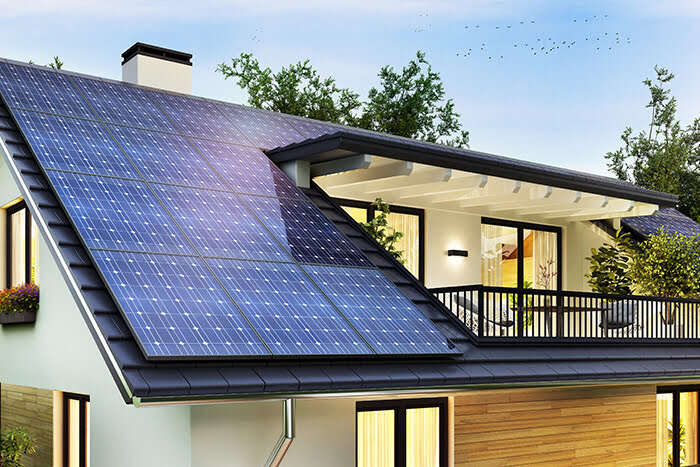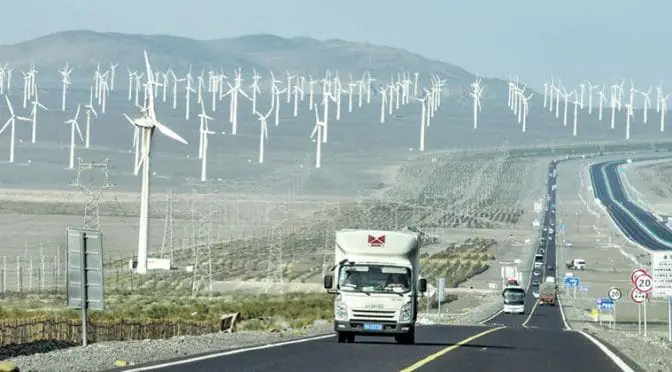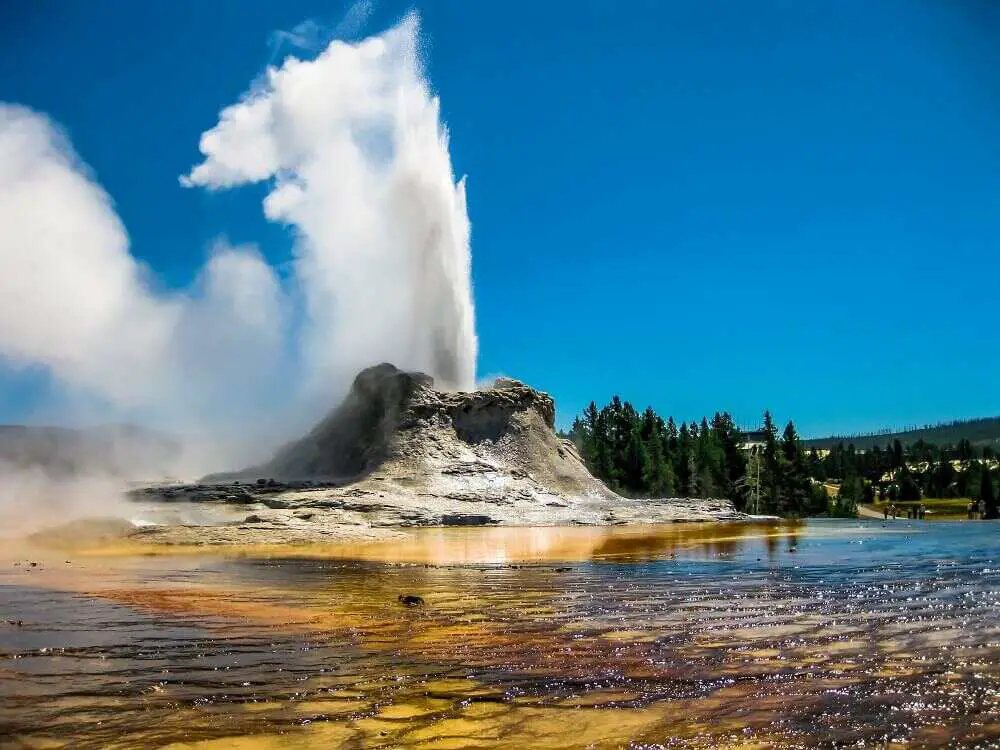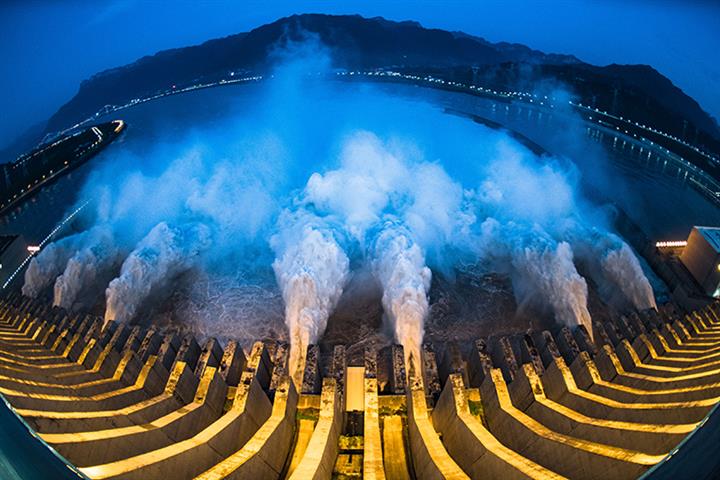Wanna know what are the top 6 examples of renewable resources? If yes, then you are at the right place at the very right time. Fundamentally speaking, there are only two types of energy resources. These are renewable resources and nonrenewable resources. And, from the heading of this article, you can easily guess that today we are only going to discuss different types of renewable energy resources.
By definition, renewable resources are those that are sustainable sources of energy, meaning, something that can’t track out or is unending. In other words, renewable resources are the ones that are replenished or restored by nature over a period of time.
Some of the advantages of renewable resources are: They are abundant in nature, clean, sustainable, natural, eco-friendly, green, and, so on. Some of the disadvantages are: They are not efficient, require large installation cost, sometimes they are not reliable, etc.
Examples of Renewable Resources – Top 6
No wonder there can be so many forms of renewable energy. Out of all, I will be discussing with you the top 6 examples of renewable energy resources that we see in our day-to-day life. Let’s dive right in…!!!
- Solar Energy – Energy of Sun
- Wind Energy – Energy of Wind
- Bio Energy – Energy of Biomass
- Geothermal Energy – Energy of Earth
- Tidal Energy – Energy of Gravity
- Hydro Energy – Energy of Water
Solar Energy – Energy of Sun

The very first one in my list of top 6 examples of renewable resources is solar energy. By definition, solar energy is nothing but the energy that we get from the sun in the form of heat or radiation.
In the current world scenario, around 2% of the world’s electricity need is being generated by solar power. Therefore, in order to reduce our dependence on fossil fuels (non-renewable), what we need to do is to switch to solar power.
Advantages of Solar Energy
There can be so many advantages of solar energy. Here is a list of some of them:
- Solar energy can be reused by storing in solar batteries
- Renewable and clean source of energy
- Reduces electricity bill
- Requires less maintenance
- Wide range of solar applications
- Reduces noise pollution, etc.
Disadvantages of Solar Energy
There are some disadvantages of solar energy. Here is a list of some of them:
- Availability of Sun
- High installation cost
- Low efficiency
- Requires larger installation area
- Solar panels make your house look dull
- Once installed, you can’t relocate it, etc.
Uses of Solar Energy
There can be so many uses of solar energy in real life. Here is a list of some of them:
- Rooftop Solar Panels
- Solar Lights
- Solar Water Heater
- Portable Solar Batteries
- Solar Ventilation Systems
- Solar Swimming Pool Heaters, etc.
Editor’s Choice:
Wind Energy – Energy of Wind

By definition, wind energy is nothing but the energy of wind that we use to generate electricity or do some kind of mechanical work.
In fact, just because the sun is the driving force behind the emergence of wind, wind energy is also regarded as a form of solar energy. In the current world scenario, around 5% of the world’s electricity needs is being generated by wind power.
Editor’s Choice: Top 6 Sources of Mechanical Energy You Should Know
Advantages of Wind Energy
There can be so many advantages of wind energy. Here is a list of some of them:
- Environment friendly
- Renewable and Clean Sources of Energy
- Reduces Electricity Bill
- Creates jobs and uplifts economy
- Provides stability in Energy Sector, etc.
Disadvantages of Wind Energy
There are some disadvantages of wind energy. Here is a list of some of them:
- Wind turbines could cause noise pollution
- High Installation Cost
- Low Efficiency
- Requires Larger Installation Area
- Cannot install anywhere
- Threat to wildlife, etc.
Uses of Wind Energy
There can be so many uses of wind energy in real life. Here is a list of some of them:
- Electricity generation
- Windmill for milling grain
- Sailing
- Windmill to cut woods
- Pumping water
- Windsurfing, etc.
Bio Energy – Energy of Biomass

Bioenergy is the energy we extract from biomass. Well, what is biomass anyway? Biomass is an organic material that comes from plants and animals. In fact, bioenergy that we get from biomass is nothing but the chemical energy stored from the sun.
Therefore, one can also say that bioenergy is also a form of solar energy. Not to mention, as per the available data, around 2% of the world’s electricity is being generated by biofuel.
Editor’s Choice: Top 6 Primary Sources of Electricity Generation in the World
Advantages of Bio Energy
There can be so many advantages of Bio-Energy. Here is a list of some of them:
- Biomass is degradable
- Environment friendly
- Renewable and Clean Sources of Energy
- Provides better air quality
- Support rural economy
- Provides stability in Energy Sector, etc.
Disadvantages of Bio Energy
There are some disadvantages of bioenergy. Here is a list of some of them:
- Deforestation
- Low Efficiency
- High cost as compared to other renewable resources
- Threat to wildlife
- Not completely clean
- Some biomass is seasonal, etc.
Uses of Bio Energy
There can be so many uses of bioenergy in real life. Here is a list of some of them:
- Electricity generation
- Biodiesel for transportation
- Cooking food
- Industrial applications, etc.
Geothermal Energy – Energy of Earth

The very next one on my list of renewable energy resources is geothermal energy. By definition, geothermal energy is the energy of the earth’s core that we get in the form of heat. In fact, the word geothermal itself defines its essence.
The word geothermal is derived from two Greek words i.e Geo meaning Earth and Thermal meaning Heat. When combined, what we get is the earth’s heat. Not to mention, as per the available data, less than 1% of the world’s electricity is being generated by geothermal.
Advantages of Geothermal Energy
There can be so many advantages of Geothermal Energy. Here is a list of some of them:
- Renewable Sources of Energy
- Geothermal Energy is Highly Reliable
- Geothermal Energy protects Environment
- No Fuel Required
- Low Production and Maintenance Costs
- Compatible with all climates, etc.
Disadvantages of Geothermal Energy
There are some disadvantages of geothermal energy. Here is a list of some of them:
- Can cause earthquakes
- Very high installation cost
- Only available at certain locations
- A geothermal reservoir may run out of steam in some areas, etc.
Uses of Geothermal Energy
There can be so many uses of geothermal energy in real life. Here is a list of some of them:
- Geothermal Energy for Electricity
- Hot Springs
- Green House Farming
- Fish Farming
- Geothermal Heating Systems
- Geothermal Geysers, etc.
Tidal Energy – Energy of Gravity

Out of all, Tidal Energy is one of the largest untapped renewable sources of energy. By definition, tidal energy is the energy that we harness by converting the energy of low and high tides to generate electricity or for doing some kind of mechanical work.
Obviously, you would be thinking about why I wrote Tidal Energy – Energy of Gravity. Okay, let me explain it to you. The gravitational pull between the earth and the moon is solely responsible for the occurrence of low as well as high tides. Well, if you don’t believe me, go check yourself. During the night, the sea level is up (High Tide) due to the presence of the moon in the sky.
Similarly, during the daytime, the sea level is down (Low Tide) due to the absence of a moon in the sky. Not to mention, as per the available data, less than 1% of the world’s electricity is being generated by tidal energy.
Editor’s Choice: Difference Between Renewable and Nonrenewable Energy Resources
Advantages of Tidal Energy
There can be so many advantages of Tidal Energy. Here is a list of some of them:
- Renewable Sources of Energy
- Tidal Energy is Highly Reliable
- Predictable
- Inexhaustible
- Low Production and Maintenance Costs
- Compatible with all climates, etc.
Disadvantages of Tidal Energy
There are some disadvantages of tidal energy. Here is a list of some of them:
- Very high installation cost
- Threat to marine life
- Still in its development phase, etc.
Uses of Tidal Energy
There can be so many uses of tidal energy in real life. Here is a list of some of them:
- Tidal Energy for Electricity
- Industrial purposes, etc.
Hydro Energy – Energy of Water

One of the most commercially viable uses of renewable resources is hydro energy. By definition, hydro energy is the gravitational potential energy of water stored in a dam that we use to generate electricity or for doing some kind of mechanical work.
The energy of the water is generated by constructing a dam across the river flowing upstream to downstream. WHY? Because in order to create a water head (pressure), a dam has to be built upstream of the river.
Not to mention, as per the available data, around 16% of the world’s electricity is generated by hydro energy. People’s Republic of China’s Three Gorges Dam is the world’s largest hydroelectric facility.
Advantages of Hydro Energy
There can be so many advantages of Hydro Energy. Here is a list of some of them:
- Renewable Sources of Energy
- Environment friendly
- Safe
- Does not require any kind of fuel
- Low Production and Maintenance Costs
- Highest efficiency among all the renewables, etc.
Disadvantages of Hydro Energy
There are some disadvantages of hydro energy. Here is a list of some of them:
- Very high upfront cost
- Risk of flood
- Can severely damage aquatic life
- Limited water reserves, etc.
Uses of Hydro Energy
There can be so many uses of hydro energy. Here is a list of some of them:
- Hydro energy for electricity
- Helps in irrigation
- Water Supply
- Industrial Purposes, etc.
That’s it for this post. If you like this article, share it if you like, like it if you share it. You can also find us on Mix, Twitter, Pinterest, and Facebook. Hey man, If you have come this far, do give us feedback in the comment section. It would make my day. You can also make a donation. Your donations will help us to run our website and serve you BETTER. Cheers!!!